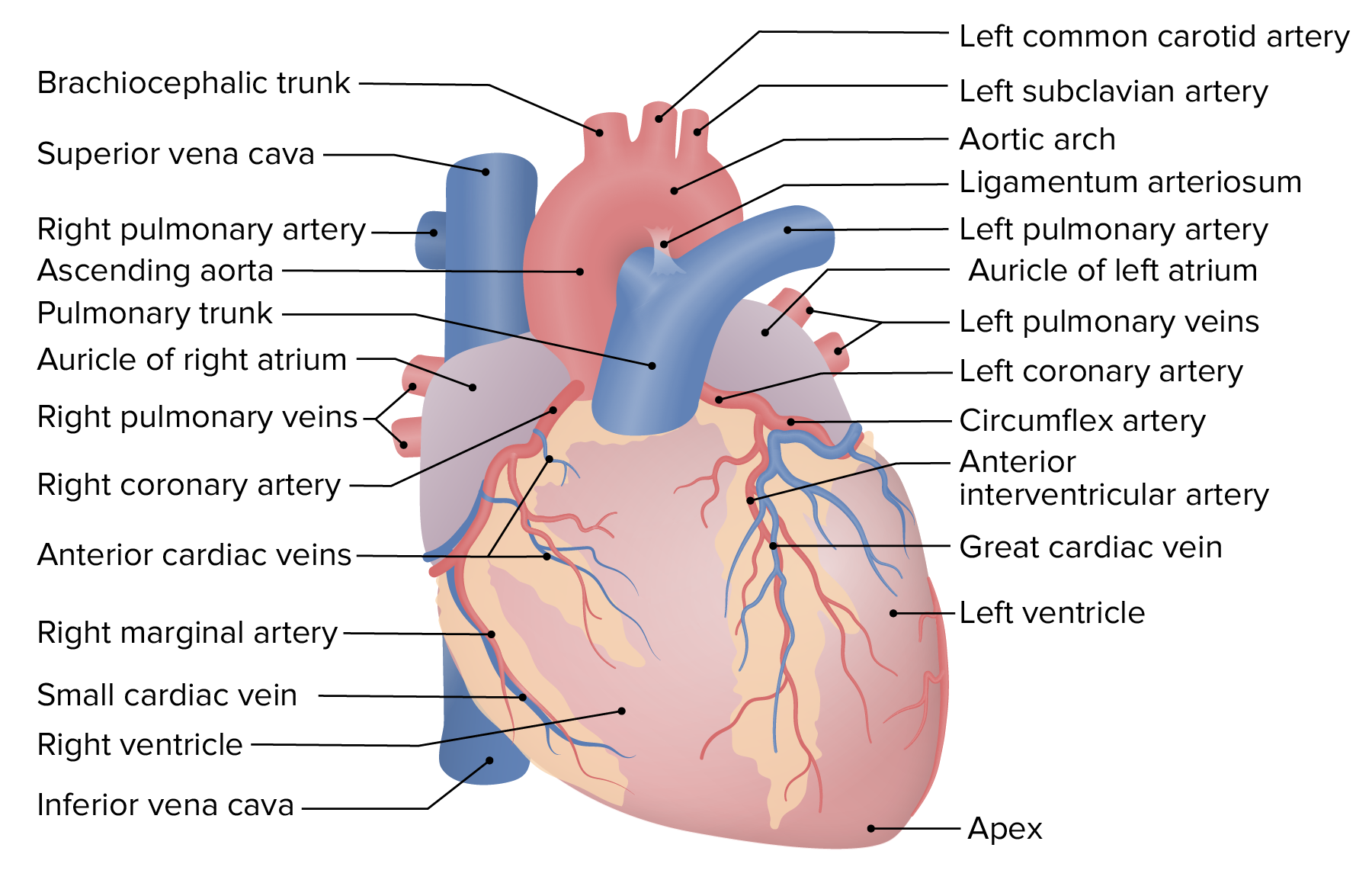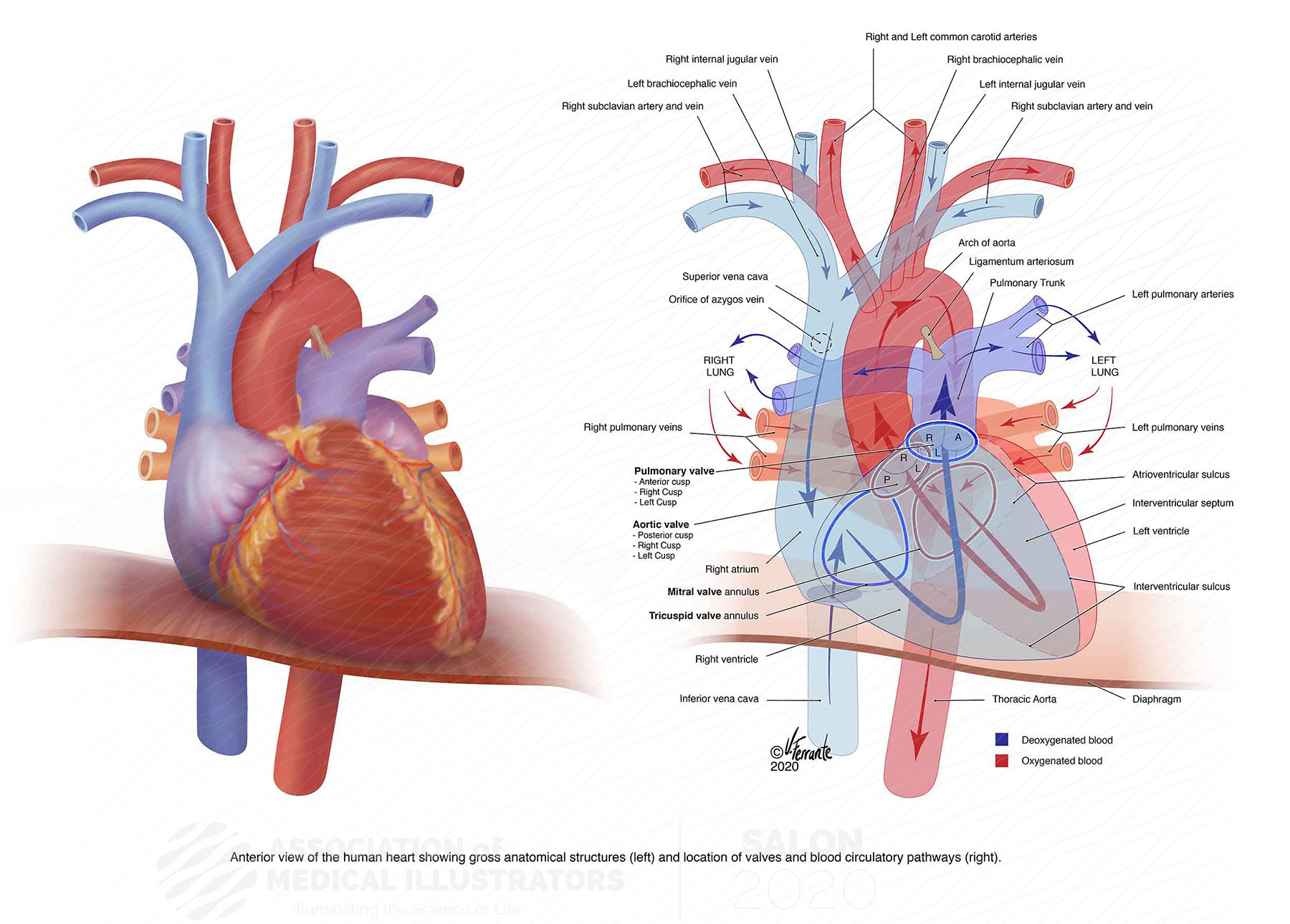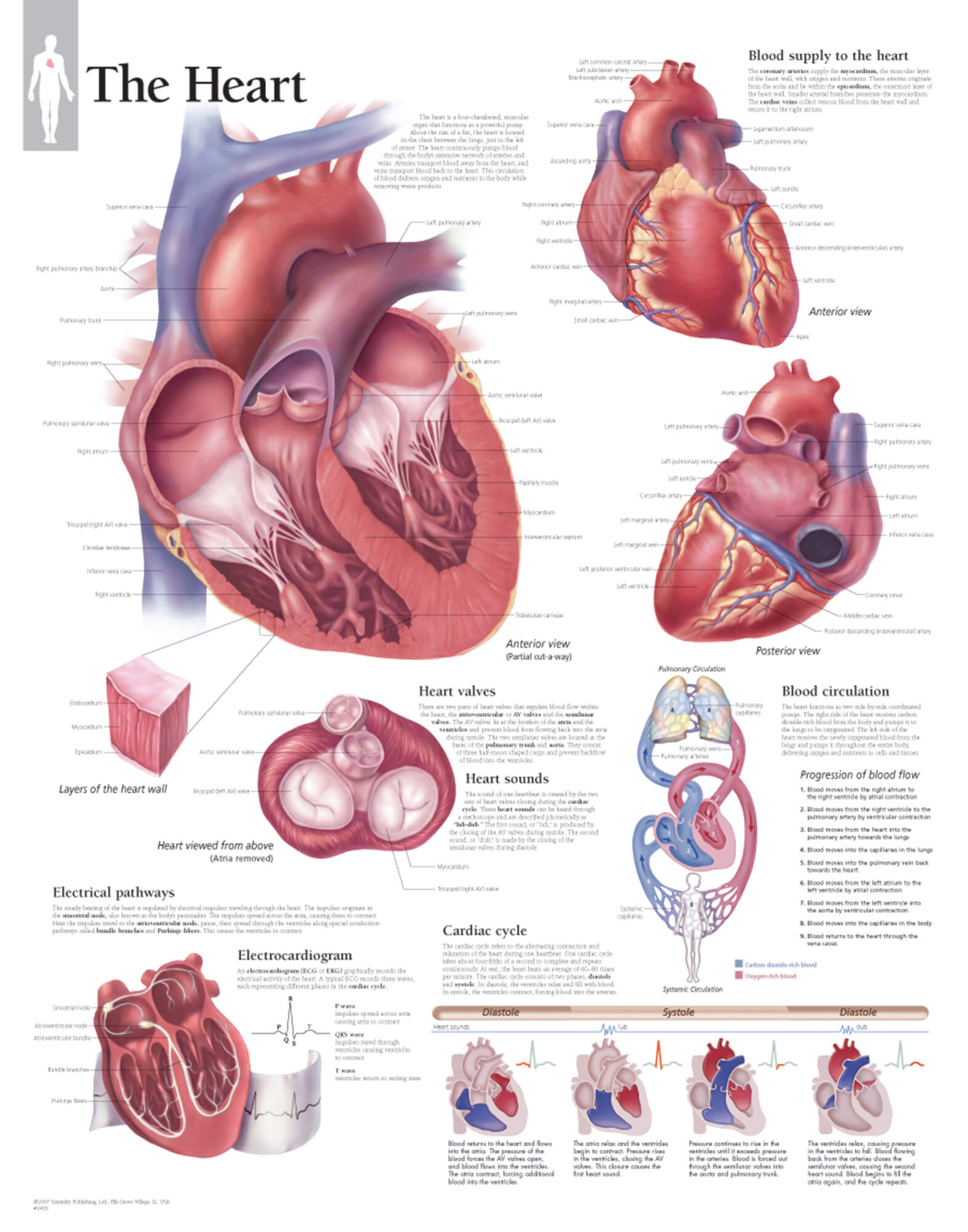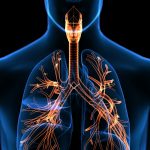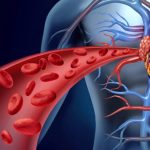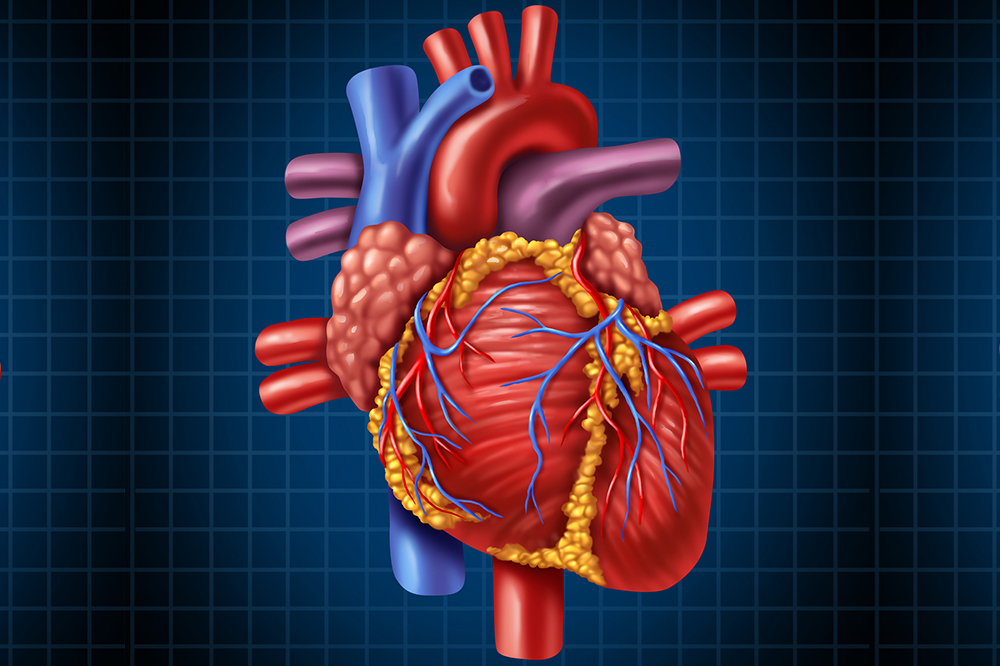
What is the heart?
The heart is a muscular organ that sits inside the rib cage, behind and just to the left of the breastbone. It pumps blood around the body to supply tissues with nutrition and oxygen.
The heart pumps blood to the lungs, where it absorbs oxygen. This oxygen-rich blood then returns to the heart to be pumped to the rest of the body via arteries. The major artery coming from the heart is the aorta. The heart delivers blood to its own muscle via the coronary arteries.
How does the heart work?
The heart has 4 chambers. The upper chambers are the right and left atria. They receive blood, which then flows through valves into the right or left ventricle (lower chambers) to be pumped to the lungs or body respectively. Heart valves stop the blood flowing backwards. When the valves shut, they create a sound that can be heard with a stethoscope.
Electrical pathways in the heart muscle make it pump. The heart’s pacemaker cells automatically trigger heartbeats. The heart muscle then squeezes, causing blood to move.

Conditions or symptoms related to the heart
There are a number of conditions or symptoms related to the heart.
Angina
Angina is chest pain caused when an area of heart muscle is not getting enough blood. Discomfort can spread to the shoulder, neck or jaw.
Coronary artery disease
Coronary artery disease occurs when the coronary arteries become clogged with fatty deposits.
Heart attack
A heart attack occurs when a blockage in a coronary artery reduces the blood (and oxygen) supply to heart muscle.
Heart failure
Heart failure occurs when the heart pumps less effectively, potentially causing tiredness, shortness of breath and sometimes swelling in the legs.
Heart valve disease
Heart valve disease occurs when the valves do not open or close properly, causing problems with blood flow.
Arrhythmia
Arrhythmia occurs when the heart is not beating in the usual pattern. The beat can be irregular, too fast or too slow.
Good health for your heart
You can lower your heart disease risk with regular exercise, maintaining a healthy weight, reducing stress, eating well and, if you are a smoker, quitting.
It is also important to manage your blood pressure and blood cholesterol level, and — if you are diabetic — to manage your diabetes.
6 ways to take care of your heart

